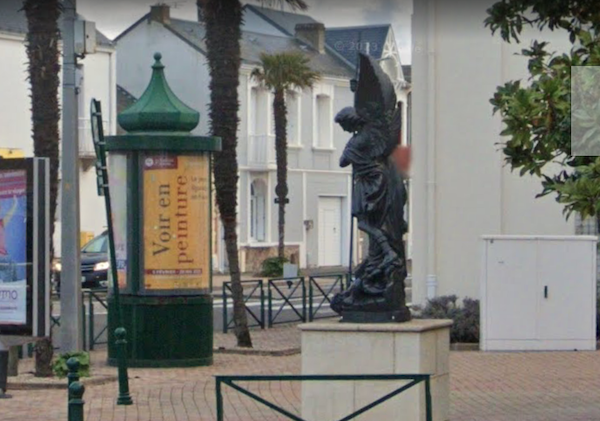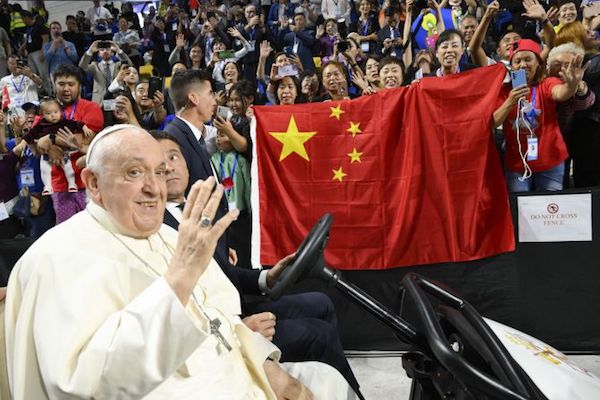As Pope Francis ended his historic four-day trip to Mongolia on Monday, a priest who concelebrated a final private Mass at the Catholic Pastoral Centre in Ulannbaatar said the visit “makes us feel like beloved disciples – this little community feels the care, the concern, the loving attention of a pastor.”
He added that, “for four days we felt a bit like the centre of the world” and the visit “encourages and strengthens us in faith, hope and charity”.
Pope Francis’ attempts to appeal to neighbouring China during his visit were closely observed. At the end of a Mass on Sunday, he sent greetings to China, calling its citizens a “noble” people and asking Catholics in China – who number around 12 million – to be “good Christians and good citizens”.
On Monday, China's foreign ministry said it has taken a positive attitude on improving relations with the Vatican. Beijing has maintained communications with the Vatican, ministry spokesperson Mao Ning told a press briefing when asked about the Pope’s comments in Mongolia.
Beijing has been following a policy of “Sinicisation” of religion, trying to root out foreign influences and enforce obedience to the Communist Party, with the Vatican complaining that Beijing has violated the 2018 agreement between China and the Vatican several times.
On Saturday, in remarks that appeared to be aimed at China rather than Mongolia, Francis said governments have nothing to fear from the Catholic Church because it “has no political agenda”.
Last Sunday almost the entire Mongolian Catholic community gathered for Mass under the same roof with the Pope, along with about 1,000 others.
Buddhist Mongolia has only 1,450 Catholics in a population of 3.3 million. At the end of Mass, Pope Francis took the hands of the current Bishop of Hong Kong, cardinal-designate Stephen Chow, and his predecessor, Cardinal John Tong, calling them “brother bishops”.
A Chinese woman at the Mass said she felt “so blessed” to have attended the service and seen the Pope.
“To have our own religion doesn’t mean that we are against our country,” the woman from Hebei province said, “we actually pray for our country.”
The same day the 86-year-old pontiff attended an inter-religious meeting alongside representatives from various religious communities, including Buddhists, Shamans, Muslim, Jews, and evangelicals and Russian Orthodox Christians.
Cardinal Giorgio Marengo, the apostolic prefect of Ulaanbaatar, accompanied the Pope throughout his visit.
The main purpose of Francis' trip was to visit the tiny Catholic community. He ended his five-day mission with a stop to inaugurate the House of Mercy, which provides health care to the homeless, victims of domestic abuse and migrants in the Mongolian capital.
“The true progress of a nation is not gauged by economic wealth, much less by investment in the illusory power of armaments, but by its ability to provide for the health, education and integral development of its people,” Francis said.
He also wanted to dispel the “myth” that the aim of Catholic institutions was to convert people to the religion, “as if caring for others were a way of enticing people to ‘join up’”.
Calling himself a “pilgrim of friendship”, Pope Francis extolled Mongolia’s virtues during his visit but warned of the dangers of corruption and environmental degradation, two major challenges faced by the nation. The capital suffers from some of the world’s worst air quality and an embezzlement scandal sparked mass street protests last year.



 Loading ...
Loading ...